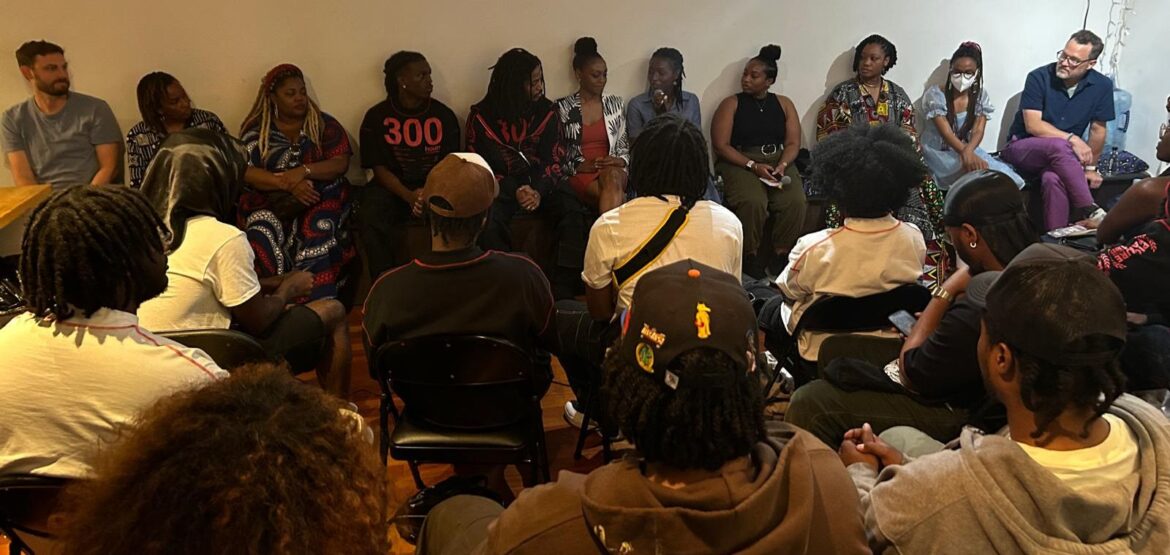New York City Welcomes The 31st Edition of the African Film Festival paying homage to early African cinema, as well as celebrating modern masterpieces.
Among the producers and film directors that screened their movies in the weekend of May 17-19 at Maysles Documentary Center in Harlem, was present during the Q/A the producers of “300 Hours” a vertical film inspired by hip-hop and trap music, with creative expression made by and for black youth at the center of the ongoing art movement taking place in New York City.
The Chef Adé who embarked on a poignant journey to her homeland of Bénin, seeking to reconnect with her African roots through food and the women who shaped her. In this touching tale, she discovers that food isn’t just sustenance, but it is a vessel of culture, history, and healing generational wounds,— and many more.
Through the observation of the convergence of time, New York African Film Festival highlights how veteran filmmakers used film to weather the changing landscape of post colonial Africa, and contemporary filmmakers employ it to visually channel the experience of modern socio-economic inequality. The overall effect is to celebrate how much authentic expression has enriched the well being of African artists and audiences alike, and provide an optimistic framework for the bright future of African cinema.
According to Steven W. Thomas, a professor at Wagner College in New York; “In contrast to the American film and television industry that tended to represent slavery as something safe in the past, pan-African filmmakers in the post colonial period were interested in unfolding a more complex historical dialect. While American filmmakers saw their art as a drama of individuals overcoming adversity.” However, Par-African filmmakers were influenced by Marxist cinema, who were interested in social structures and systemic oppression, and pan-Africanist filmmakers were interested in a repressed historical memory and a revolutionary Black identity.
‘Bite of Bénin’ an award winning documentary star Chef Adé Carrena, tells a story of how she was raised in rural Benin, and she was adopted by a Puerto Rican family in Connecticut at age 10, severing ties with her family and country. Suddenly an African American immigrant growing up in a Hispanic household, Carrena didn’t really fit anywhere. But years later, after reconciling with her mother and repairing her connection to Benin, Carrena went on a mission to educate and expose people to her roots. “I went back and fell in love with my heritage and ancestry,” she said. “That’s when I decided I needed to share food and culture from my home—through my own journey of self-discovery.”
Through the observation of the convergence of time, New York African Film Festival highlights how veteran filmmakers used film to weather the changing landscape of post colonial Africa, and contemporary filmmakers employ it to visually channel the experience of modern socio-economic inequality. The overall effect is to celebrate how much authentic expression has enriched the well being of African artists and audiences alike, and provide an optimistic framework for the bright future of African cinema.
Launched in 1993 and one of the first of its kind in the United States, the festival reflects on the myriad ways African and diaspora storytellers have used the moving image as a mold to tell stories with their own nuances and idiosyncrasies. Under the banner Freeforms, the festival presents more than 30 films from more than 15 countries that invite audiences to explore the infinite realms of African and diaspora storytelling and embrace its visionary, probing and fearless spirit.

